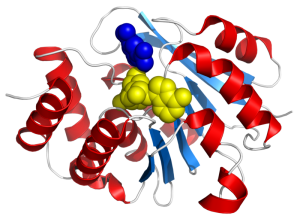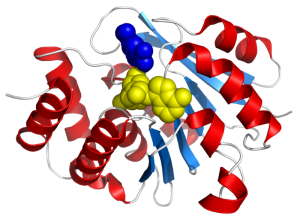One protein to rule them all…in times of stress.
The New York Times reports that a study conducted by the Science Education Center at National Taiwan Normal University found a gene linked to how students responded to the stress induced by a national exam that determines high school admissions.

The gene in question is called “COMT” and it codes for different versions of an enzyme that regulated dopamine levels in the brain. Some people have a fast-acting version, while others have a slow-acting version, though the majority of people carry both versions in their DNA.
The fast acting version quickly clears dopamine from the brain in times of stress. People with this version of the enzyme experience stress almost as if they’re taking a mental performance enhancing drug, and they are able to focus and reason exceptionally well under the gun. I’ll call them the “thrill-seekers.”
For people with the slow acting version, it’s a different story. When their brains are flooded with dopamine during a stressful event, the enzyme can’t clear the compound fast enough, leading to degraded decision making skills and poor performance. One might call this allele of the gene the “chokes-under-pressure” phenotype.
Interestingly, during times of relatively low stress, the chokes-under-pressure folks actually do better at tasks. Meanwhile, the researchers speculate that for those with the fast acting allele, they needs stress in order to exhibit peak performance– competition, stress, hazards: these folks say “bring it on!”–and during times of low stress, they sleep-walk through tasks without “bringing it.”
So how do we use this knowledge to work with what we got? Chokes-under-pressure students were able to train their minds to react better and reduce the stress they feel in those situations, with improved performance on standardized tests as a result. So stress management becomes crucial for their performance. The thrill-seeker cohort meanwhile can use their competitiveness to their advantage: by turning everyday tasks into games or competitions, they can turn on their nascent capabilities.
What does this mean?
We are on the cusp of unraveling the genetic basis for many kinds of illnesses and for “normal” behaviors. We may be surprised by how many complex behaviors are regulated or influenced by just a few genes. But we may also be frustrated by conditions that are based on many types of genes as well as environmental factors.
